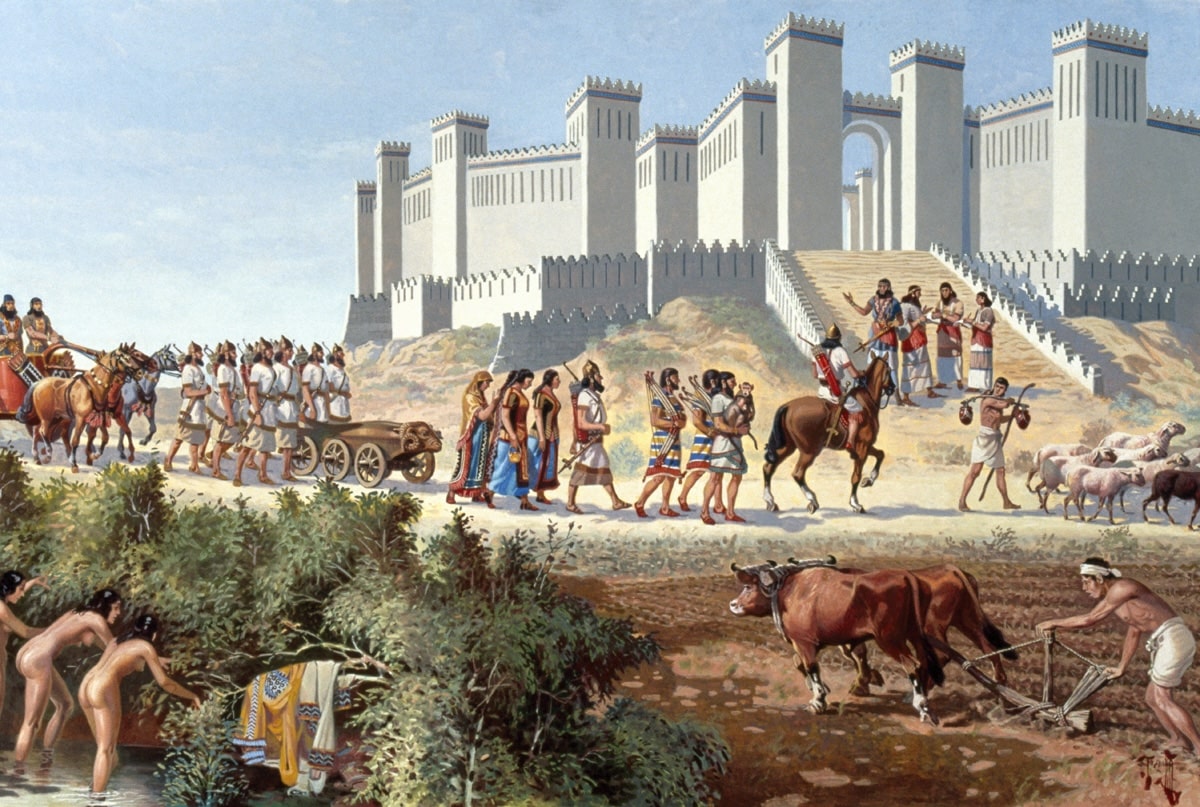
Ancient civilizations have always fascinated us with their mysteries and achievements. From the towering pyramids of Egypt to the intricate road systems of the Inca Empire, these societies left behind legacies that continue to intrigue historians and enthusiasts alike. Did you know that the Great Wall of China stretches over 13,000 miles? Or that the ancient Greeks invented the concept of democracy? These civilizations laid the groundwork for many aspects of modern life, including architecture, governance, and art. In this post, we'll explore 21 captivating facts about ancient civilizations that will transport you back in time and reveal the ingenuity of our ancestors. Buckle up for a journey through history that will leave you amazed and inspired!
Mesopotamia: The Cradle of Civilization
Mesopotamia, often called the "Cradle of Civilization," was home to some of the earliest human societies. Let's dive into some fascinating facts about this ancient land.
- Mesopotamia, located between the Tigris and Euphrates rivers, is where the first cities emerged.
- The Sumerians, who lived in Mesopotamia, invented the wheel around 3500 BCE.
- Cuneiform, one of the earliest writing systems, was developed by the Sumerians.
- The Code of Hammurabi, one of the oldest deciphered writings of significant length, originated in Babylon, a Mesopotamian city.
- Mesopotamians practiced advanced agriculture, using irrigation to water their crops.
Ancient Egypt: Land of the Pharaohs
Ancient Egypt, known for its pyramids and pharaohs, has a rich history filled with intriguing facts.
- The Great Pyramid of Giza, built for Pharaoh Khufu, is one of the Seven Wonders of the Ancient World.
- Egyptians believed in an afterlife, which is why they mummified their dead.
- Hieroglyphics, the writing system of ancient Egypt, used symbols to represent sounds and ideas.
- The Nile River was crucial to Egyptian civilization, providing water, transportation, and fertile land.
- Cleopatra VII, the last pharaoh of Egypt, was of Macedonian Greek descent, not Egyptian.
Ancient Greece: Birthplace of Democracy
Ancient Greece is often credited with laying the foundations of Western civilization. Here are some key facts about this influential culture.
- Democracy, a system of government where citizens vote on decisions, was first practiced in Athens.
- The Olympic Games, which began in Olympia, Greece, were held every four years to honor Zeus.
- Greek philosophers like Socrates, Plato, and Aristotle shaped Western thought.
- The Parthenon, a temple dedicated to Athena, stands as a symbol of ancient Greek architecture.
- Greek mythology, with gods like Zeus, Hera, and Apollo, has influenced literature and art for centuries.
Ancient China: The Middle Kingdom
Ancient China, known for its innovations and dynasties, has a history that spans thousands of years. Let's explore some fascinating facts.
- The Great Wall of China, built to protect against invasions, stretches over 13,000 miles.
- Paper, one of the Four Great Inventions of China, was invented during the Han Dynasty.
- Confucius, a Chinese philosopher, emphasized morality, family loyalty, and respect for elders.
- The Terracotta Army, discovered in the tomb of Emperor Qin Shi Huang, consists of thousands of life-sized clay soldiers.
- Silk, a luxurious fabric, was first produced in China and became a major trade commodity along the Silk Road.
The Maya Civilization: Masters of Astronomy
The Maya civilization, known for its advanced knowledge of astronomy and mathematics, flourished in Mesoamerica. Here are some intriguing facts.
- The Maya developed a complex calendar system, including the famous Long Count calendar, which predicted cycles of time.
Ancient Civilizations: A Glimpse into the Past
Ancient civilizations left behind a wealth of knowledge, culture, and innovation. From the pyramids of Egypt to the philosophers of Greece, these societies shaped the world we know today. They gave us writing systems, architectural marvels, and philosophical ideas that still influence modern life. Understanding their achievements helps us appreciate our own history and progress.
These civilizations also faced challenges like natural disasters, wars, and economic struggles. Yet, their resilience and ingenuity allowed them to thrive for centuries. By studying their successes and failures, we gain valuable lessons for our own future.
Ancient civilizations remind us of humanity's potential for greatness. Their stories inspire us to strive for innovation, wisdom, and cultural richness. So next time you marvel at a piece of ancient art or read a historical text, remember the incredible legacy these early societies left behind.
Was this page helpful?
Our commitment to delivering trustworthy and engaging content is at the heart of what we do. Each fact on our site is contributed by real users like you, bringing a wealth of diverse insights and information. To ensure the highest standards of accuracy and reliability, our dedicated editors meticulously review each submission. This process guarantees that the facts we share are not only fascinating but also credible. Trust in our commitment to quality and authenticity as you explore and learn with us.


